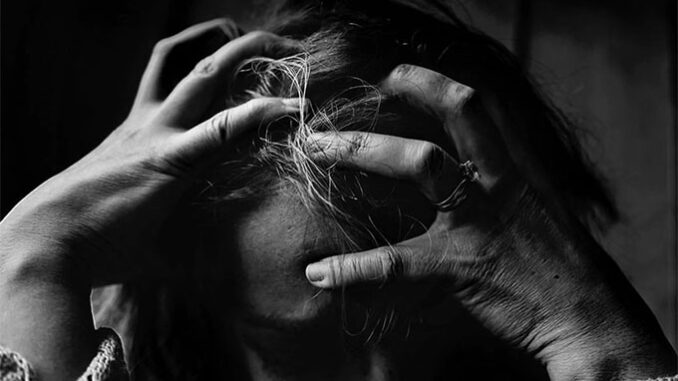
By HOLLY RAMER
Associated Press
Mental health officials said Monday that children are a particular concern during the coronavirus pandemic both as patients and as offspring of providers working from home.
The pandemic has exacerbated existing workforce challenges in behavioral health, Cynthia Whitaker, interim president of Greater Nashua Mental Health, said during an online discussion organized by U.S. Sen. Maggie Hassan, D-N.H. She and others said many providers are juggling their jobs with overseeing their children’s remote educations.
“We have a lot of staff hitting this breaking point in the fall of, ‘Can I actually effectively do my job, talking to someone who’s had a traumatic event, while in the next room my child can’t get on Zoom for math class?”’ said Rebecca Throop, vice president of community relations at Seacoast Mental Health Center.
Referrals to mental health centers for children have dropped during the pandemic, Throop said, because teachers haven’t been assessing children. And parents often aren’t equipped, she said.
“When we’re getting children in emergency services for intakes, the severity we’re seeing has skyrocketed,” she said. “Parents are waiting until there’s a crisis and then they bring their kids in, when it’s so obvious you can’t ignore it.”
The state accomplished a major mental health care milestone in late March when, for the first time in eight years, no one was waiting in a hospital emergency room for an inpatient psychiatric bed. But the waitlist has been steadily increasing, and on one day last week, 42 adults and 23 children were waiting in emergency rooms.
Hassan, who also heard from providers who treat veterans and those struggling with substance use disorders, said she hopes Congress will approve additional funding for mental health, including training and education and expanded broadband to support telehealth.
In other coronavirus-related developments:
ON CAMPUS
Classes are underway at several college campuses in New Hampshire, with safety measures in place aimed at preventing the spread of the coronavirus.
In-person teaching resumed Monday at Plymouth State University and New England College. At Keene State College, classes also began Monday but were taught remotely. Students will begin returning there Wednesday, with on-campus classes starting Aug. 31.
At New England College, students were tested for the virus before arrival and again upon arrival. President Michele Perkins said five students have tested positive so far.
In other coronavirus-related developments:
UNEMPLOYMENT BENEFITS
The federal government has approved New Hampshire’s participation in a program to provide an extra $300 per week to unemployed workers, Gov. Chris Sununu said Monday.
After a federally funded $600 weekly benefit expired in July, President Donald Trump signed an executive order to extend a reduced benefit of $300 or $400 a week, depending on which plan governors choose.
New Hampshire opted for the lower amount, and anyone who already is getting $100 per week from the state will get the additional amount without the state having to pay more. For the rest, the state will bring them up to $100 so they can qualify for the additional money.
THE NUMBERS
As of Monday, 7,134 people had tested positive for the virus in New Hampshire, an increase of 27 from the previous day. The number of deaths stood at 429. The seven-day rolling average of daily new cases in New Hampshire decreased over the past two weeks from 31 new cases per day on Aug. 9 to 17 new cases per day on Aug. 23.
For most people, the coronavirus causes mild or moderate symptoms, such as fever and cough that clear up in two to three weeks. For some, especially older adults and people with existing health problems, it can cause more severe illness, including pneumonia or death.

Be the first to comment